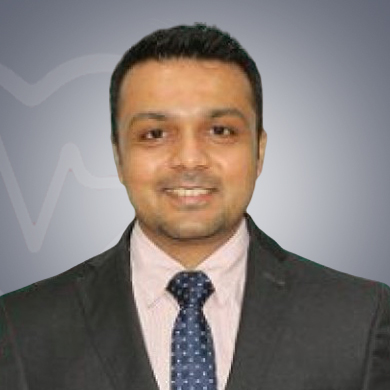
Opthalmologist
Fortis Hiranandani Hospital , Mumbai, India15 Years of experience
Speaks: English
Dr Harshvardhan Ghorpade is a renowned ophthalmologist who has vast experience in various surgeries and can treat a number of conditions listed below:
The treatment for dry eye is decided after an opthalmologist performs tests and evaluates the severity of the disease. The treatment options may include proper dieting, medications, and surgery. The doctor might use certain antibiotics for bacterial conjunctivitis. Antibiotics might lessen the duration of the infection.
Some of the signs and symptoms of different types of eye diseases are as follows:
If you did not have an eye examination for more than one year, you must consult your opthalmologist. You should remain aware of some warning signs of eye problems as this can help you take the required steps for the health of your eyesight. In some cases, detached retina and onset of glaucoma, quick intervention is required to minimize the permanent vision loss.
You can consult Dr Harshvardhan Ghorpade from 10 am to 5 pm. The ophthalmologist works an average of 47 hours per week.
Ophthalmologist Harshvardhan Ghorpade has performed a wide range of procedures. Some of the popular procedures performed by the doctor include:
LASIK or laser-assisted in situ keratomileusis is a common eye procedure performed when a person wants better vision and does not want to wear contact lenses and glasses. LASIK is the most common type of eye surgery that fixes issues with the way the eyes focus. The procedure is performed using a laser to remove tissues.

Share Your Experience about Dr. Harshvardhan Ghorpade

An ophthalmologist is a medical doctor who is trained in vision and eye care. Ophthalmologists are different from optometrists and opticians because of their different levels of training and the conditions they diagnose and treat. Some ophthalmologists work closely with other medical experts to provide care for chronic eye conditions. An ophthalmologist also diagnoses as well as treats eye conditions, does eye surgeries, and participates in scientific research on the causes and treatment for eye diseases and vision issues. Sometimes, ophthalmologists also detect health issues that are not related to the eyes but become clear in a routine eye exam. The ophthalmologist recommends that the person should consult their doctor.
For the evaluation of your eye condition, you have to get certain tests done which may include the following:
Eye exams are critical because severe eye diseases such as glaucoma, cataracts, macular degeneration, or diabetic retinopathy may have minimal symptoms until the condition has progressed. An eye exam involves a number of tests to check your vision and eye diseases. An opthalmologist will perform a series of tests to find out the eye problem and will recommend a treatment plan.
An individual needs to consult an opthalmologist in case of the below situations:
If you notice the above-listed signs and symptoms, you are suggested to see an opthalmologist for a proper diagnosis of the condition. The opthalmologist will evaluate the test reports and will plan the treatment that is best for you.